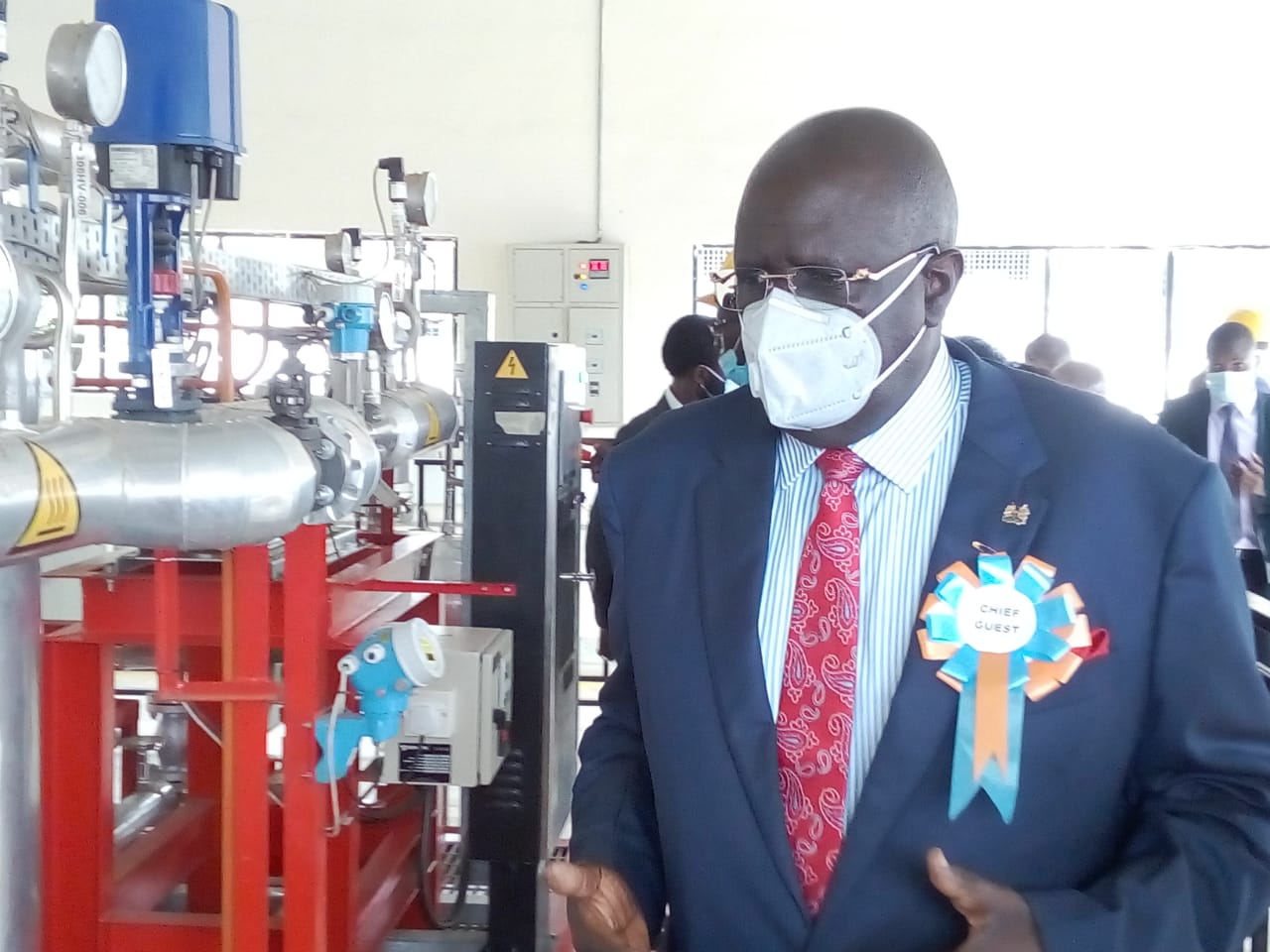Fredrick Odiero
Education Cabinet Secretary George Magoha has urged Technical and Vocational Training institutions to be more practical to produce graduates who are skills-oriented.
Magoha, who presided over the 9th Graduation Ceremony at Kisumu National Polytechnic, said theoretical teaching has now been overtaken by events. A total of 3,781 students graduated.
Saying TVETs should stop being examination-oriented, he regretted that most public universities produced graduates who do not add much value.
“There is no need of graduating with a degree certificate and thereafter ‘tarmacking’ for years looking for jobs,” Magoha said.
He said the craze for universities should now stop and more students should join TVETs where they can equip themselves with necessary life skills, which are market-oriented.
“There are shortages of plumbers and electricians. For instance, where I come from, I have to look for an electrician 40 kilometres away,” Magoha said, adding that those with required skills do not look for jobs; instead jobs look for them.
Magoha noted that every occupation is important and Kenyans should stop focusing on white collar jobs.
He said TVET skills are required globally and cited plumbing which are earning people good money.
“There is a shortage of plumbers worldwide. While Kenyan plumbers feel inferior, the course earns a lot of money in foreign countries,” Magoha said.
The CS directed tutors to focus on equipping learners with needed skills to achieve success in their lives.
He also challenged the TVETs management to embrace accountability in the implementation of projects to avoid loss of public funds.
During the graduation, Magoha also presided over the ground-breaking of a textile industry worth Sh.394million.
Vocational Principal Secretary Margaret Mwakima said the government had increased the number of TVETs from 52 in 2013 to 238 in 2021 at a cost of Sh.10.6 billion, out of which 198 are operational and 46 are almost complete.
Mwakima noted that there had been an increase of TVETs enrolment from 55,945 in 2013 to 241, 316 in 202. This had been made possible by injecting Sh.10.3 billion capitation and a grant of sh.11.1billion in form of loans to trainees.
Additionally, a conditional grant of Sh.2 billion was allocated to Vocational Training Centres(VTCs) every financial year.
The PS urged county governments to prioritize the standards of quality assurance for the VTCs to equip learners with needed skills, now that funds are channelled directly to counties.
She said that TVETs graduates enter the competitive global labour market, which should be exploited.
“For this reason, I want to urge all the national Polytechnics to benchmark, collaborate and partner with top institutions in the world. Such collaborations result in internationally recognized programmes that are relevant both locally and internationally,” Mwakima said.
She said TVETs should ensure that courses they offer equip trainees with entrepreneurial skills to establish own businesses on completion.
The PS said the government will enlist some 3,000 trainers with an aim of addressing shortages.
“This will no doubt go a long way in creating employment opportunities for the Big Four Agenda,” Mwakima added.
Kisumu Governor Professor Peter Anyang Nyong’o said that as a county they were proud of the national polytechnic, noting it was one of the academic landmarks not only in the area but within the Lake Region Economic Bloc.
Nyong’o said the Kisumu National Polytechnic had registered a remarkable growth in the past two decades, with new courses being introduced to keep up with the job market trends.
He said he was excited by the textile department as it was introduced to bolster the sector.
“I am happy this department has today made tremendous improvement. I want to see it grow even bigger and compete in the garment making market,” he said.
The governor said he is proud that Kisumu National Polytechnic had attracted the attention of the international donor groups because of the good work it had been doing.
“I am saying this because this institution is one of the beneficiaries of the prestigious World Bank-sponsored Eastern Africa Skills for Transformation and Regional Integration Project (EASTRIP),” he said.
The governor said the project, which is also being implemented in Tanzania and Ethiopia, is meant to improve access and quality of technical and vocational education and training.
Nyong’o said he was happy to learn that the project was helping the institution in the training of managers and the construction of a Learning Factory Model that will help students get a hands-on-experience with equipment used in the manufacturing industry.
He observed that TVETs are the most important ingredient in the achievement of Sustainable Development Goals SDGs), Vision 2030 and the Big Four Agenda.
He said this explained why Kisumu and other county governments were attaching serious importance to TVETs.
As a county, Nyong’o said they were sincerely committed to building a vibrant TVET sector down to the Ward levels because they believed these are the best platforms to create jobs for young people.
Enumerating the growth of TVETS in the county, Nyong’o said they had opened 5 VTCs namely Kandaria, Kochogo, Withur, Obwolo and Kianja.
“To us, that small vocational training centre deep in the village is extremely important because it has the potential to produce an electrical engineer. Let’s support vocational training because they hold the future,” he said.






